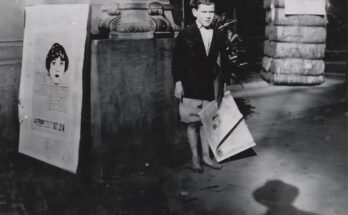Alexander Salamacha was born on 28 May 1899 in Ukraine, then a part of the Russian Empire. His birth occurred during a time of significant political and social upheaval in Eastern Europe, a period marked by the crumbling of empires and the rise of nationalist movements. Like many in rural Ukraine, Salamacha came from a farming background, likely engaged in agrarian life from a young age. The countryside, though picturesque, often bore the brunt of war, revolution, and famine during the early 20th century.
As a farmer, Alexander Salamacha would have led a life deeply tied to the land and seasonal rhythms. This way of life was both physically demanding and vulnerable to external forces such as economic depression, land reforms, and later, the horrors of war. Ukraine, during Salamacha’s lifetime, endured immense suffering—World War I, the Bolshevik Revolution, the Holodomor famine in the 1930s, and finally, the devastation brought by World War II. Amidst such chaos, even the most modest lives, like that of Salamacha, were swept into the tide of history.
With the outbreak of World War II and the subsequent invasion of the Soviet Union by Nazi Germany in 1941, Ukrainian territories became the site of brutal occupation. The Nazi regime implemented harsh policies against perceived enemies, including political dissidents, Jews, Roma, and other groups. Ukrainians, both Jews and non-Jews, were caught in this merciless system. Alexander Salamacha’s arrest and deportation to Auschwitz is indicative of this widespread repression. The reasons for his arrest are not recorded, but many Ukrainians were sent to concentration camps for resistance, aiding partisans, or simply being deemed undesirable by the Nazi regime.
On 27 August 1942, Alexander Salamacha was registered at the Auschwitz concentration camp, the most notorious of the Nazi death and labor camps. He was given the prisoner number 61851. Auschwitz was a place of immense suffering, where starvation, disease, forced labor, and mass murder were daily realities. The conditions were inhumane, and survival depended as much on luck as on strength or resilience. For someone like Salamacha, whose life had revolved around hard agricultural labor, this environment would have been a hellish transformation of everything he knew.
The prisoner number, 61851, was tattooed on Salamacha’s body as part of the dehumanizing process at Auschwitz. In the camp, individuals were stripped of their names and identities, reduced to mere numbers in the Nazi system. This erasure of personal identity was both a psychological and physical form of oppression, aimed at destroying the human spirit. Nevertheless, each number held a story, a life lived before the barbed wire and watchtowers. For Salamacha, it was the story of a Ukrainian farmer who, through no fault of his own, found himself in the grip of the 20th century’s darkest machinery.
On 4 March 1943, less than seven months after his arrival, Alexander Salamacha perished in Auschwitz. The exact cause of his death is unknown, though starvation, disease, exhaustion, or execution were all tragically common ends for those imprisoned in the camp. His death is a single entry in the grim ledger of the Holocaust, but it represents countless others whose lives were similarly extinguished. The loss of ordinary individuals like Salamacha is a sobering reminder of how war and hatred can reach into even the most peaceful corners of the world.
Today, remembering Alexander Salamacha is an act of historical and moral importance. He was not a soldier, nor a politician, but a farmer—someone whose life revolved around the soil, seasons, and community. Yet, he became a victim of one of history’s greatest crimes. His story, brief though it may seem, contributes to our collective memory and serves as a solemn testament to the millions whose lives were disrupted and destroyed by the Holocaust. Through remembrance, we honor his humanity and reaffirm the dignity of all those who suffered under tyranny.


